Featured books by CCPR researchers
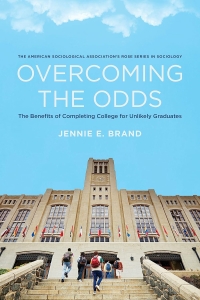
Overcoming the Odds: The Benefits of Completing College for Unlikely Graduates (American Sociological Association’s Rose Series)
In Overcoming the Odds sociologist Jennie E. Brand reveals the benefits of completing college by comparing life outcomes of college graduates with their college counterfactuals. Drawing on two cohorts of nationally representative data from the Bureau of Labor Statistics National Longitudinal Surveys program, Brand uses matching and machine learning methods to estimate the effects of college completion across students with varying likelihoods of completing four-year degrees. To illustrate her findings, Brand describes outcomes using matched vignettes of college and non-college graduates. Brand shows that four-year college completion enables graduates to increase wages and household income, while also circumventing unemployment, low-wage work, job instability, poverty, and social assistance. Completing college also increases civic engagement. Most of these benefits are larger for disadvantaged than for more advantaged students, rendering arguments that college has limited benefits for unlikely graduates as flawed. Brand concludes that greater long-term earnings, and less job instability and unemployment, and thus more tax revenue, less reliance on public assistance, and high levels of volunteering indicate that public investment in higher education for students from disadvantaged backgrounds yields far-reaching collective benefits. She asserts that it is better for our society when more people complete college.
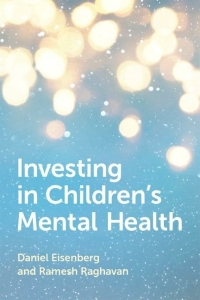
Investing in Children’s Mental Health
Investing in Children’s Mental Health investigates and addresses three interrelated questions:1) What are some of the best available investments to improve the mental health of children and adolescents in the United States? 2) To what extent are these investments being made? 3) What can practitioners, child-serving organizations, policymakers, and other stakeholders do to promote such investments? Daniel Eisenberg and Ramesh Raghavan open with a broad synthesis of the latest research and evidence, then introduce a series of case studies featuring interventions and programs spanning a variety of settings and age groups: home visiting programs, parenting programs, social and emotional learning (SEL) programs in schools, multisystemic therapy (MST) for troubled youth, and the Communities that Care framework for addressing youth substance use and wellbeing. The final sections distill key themes and offer recommendations for a range of stakeholders including policymakers, administrators, funders, and practitioners.
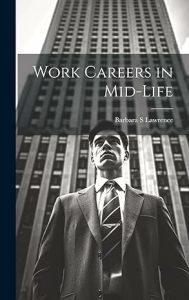
Work Careers in Mid-life
This book explores the challenges and opportunities faced by people in mid-life who are navigating transitions in their work and career paths. It includes advice for managing job loss, changing careers, and finding purpose and satisfaction in later life. This work has been selected by scholars as being culturally important, and is part of the knowledge base of civilization as we know it. Scholars believe, and we concur, that this work is important enough to be preserved, reproduced, and made generally available to the public. We appreciate your support of the preservation process, and thank you for being an important part of keeping this knowledge alive and relevant.
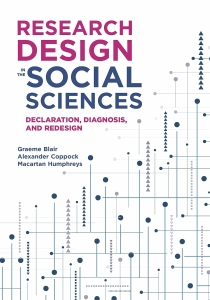
Research Design in the Social Sciences: Declaration, Diagnosis, and Redesign
A state-of-the-art approach to evaluating research design for students and scholars across the social sciences. Assessing the properties of research designs before implementing them can be tricky for even the most seasoned researchers. This book provides a powerful framework—Model, Inquiry, Data Strategy, and Answer Strategy, or MIDA—for describing any empirical research design in the social sciences. MIDA enables you to characterize the key analytic features of observational and experimental designs, qualitative and quantitative designs, and descriptive and causal designs. An accompanying algorithm lets you declare designs in the MIDA framework, diagnose properties such as bias and precision, and redesign features like sampling, assignment, measurement, and estimation procedures. Research Design in the Social Sciences is an essential tool kit for the entire life of a research project, from planning and realization of design to the integration of your results into the scientific literature.
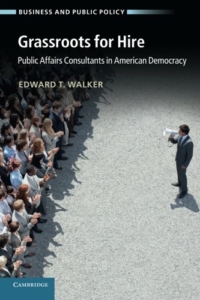
Grassroots for Hire: Public Affairs Consultants in American Democracy
Although ‘grassroots’ conjures up images of independent citizen organizing, much mass participation today is sponsored by elite consultants working for corporations and powerful interest groups. This book pulls back the curtain to reveal a lucrative industry of consulting firms that incentivize public activism as a marketable service. Edward Walker illustrates how, spurred by the post-sixties advocacy explosion and rising business political engagement, elite consultants have deployed new technologies to commercialize mass participation. Using evidence from interviews, surveys and public records, Grassroots for Hire paints a detailed portrait of these consultants and their clients. Today, Fortune 500 firms hire them to counter-mobilize against regulation, protest or controversy. Ironically, some advocacy groups now outsource organizing to them. Walker also finds that consultants are reshaping both participation and policymaking, but unethical ‘astroturf’ strategies are often ineffective. This pathbreaking book calls for a rethinking of interactions between corporations, advocacy groups, and elites in politics.
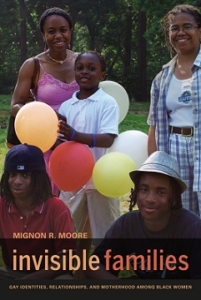
Invisible Families: Gay Identities, Relationships, and Motherhood among Black Women
Mignon R. Moore brings to light the family life of a group that has been largely invisible—gay women of color—in a book that challenges long-standing ideas about racial identity, family formation, and motherhood. Drawing from interviews and surveys of one hundred black gay women in New York City, Invisible Families explores the ways that race and class have influenced how these women understand their sexual orientation, find partners, and form families. In particular, the study looks at the ways in which the past experiences of women who came of age in the 1960s and 1970s shape their thinking, and have structured their lives in communities that are not always accepting of their openly gay status. Overturning generalizations about lesbian families derived largely from research focused on white, middle-class feminists, Invisible Families reveals experiences within black American and Caribbean communities as it asks how people with multiple stigmatized identities imagine and construct an individual and collective sense of self.
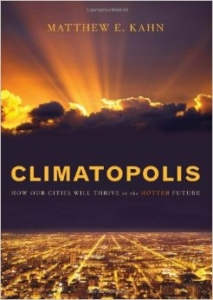
Climatopolis: How Our Cities Will Thrive in the Hotter Future
We have released the genie from the bottle: climate change is coming, and there‘s no stopping it. The question, according to Matthew Kahn, is not how we’re going to avoid a hotter future but how we‘re going to adapt to it. In Climatopolis, Kahn, one of the world’s foremost experts on the economics of the environment, argues that cities and regions will adapt to rising temperatures over time, slowly transforming our everyday lives as we change our behaviors and our surroundings. Taking the reader on a tour of the world‘s cities — from New York to Beijing to Mumbai — Kahn’s clear-eyed, engaging, and optimistic message presents a positive yet realistic picture of what our urban future will look like.

Intimate Relationships
Highlighting exciting research and the latest societal trends, Intimate Relationships provides the most engaging and contemporary introduction to the field.
Bradbury and Karney’s Intimate Relationships introduces students to the study of intimate relationships while using a critical thinking approach that encourages them to interact with what they read. Foundational topics like theoretical perspectives, cultural influences, gender, and sexuality are balanced with coverage of nontraditional relationships, cohabitation, couples therapies, divorce, and relationships across the lifespan. Current trends that affect students directly, from hooking up to social networking web sites and internet dating also make this the most contemporary text available.
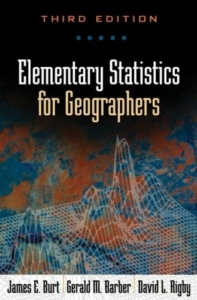
Elementary Statistics for Geographers (3rd ed.)
Widely adopted, this uniquely comprehensive text introduces the techniques and concepts of statistics in human and physical geography. Unlike other texts that gloss over the conceptual foundations and focus solely on method, the book explains not only how to apply quantitative tools but also why and how they work. Students gain important skills for utilizing both conventional and spatial statistics in their own research, as well as for critically evaluating the work of others. Most chapters are self-contained in order to provide maximum flexibility in course design. Requiring no math beyond algebra, the book is well suited for undergraduate and beginning graduate-level courses. Helpful features include chapter summaries, suggestions for further reading, and practice problems at the end of each chapter.
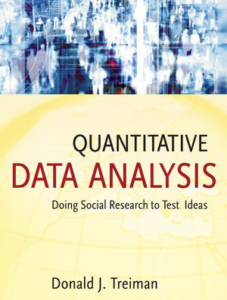
Quantitative Data Analysis: Doing Social Research to Test Ideas
This book is an accessible introduction to quantitative data analysis, concentrating on the key issues facing those new to research, such as how to decide which statistical procedure is suitable, and how to interpret the subsequent results. Each chapter includes illustrative examples and a set of exercises that allows readers to test their understanding of the topic. The book, written for graduate students in the social sciences, public health, and education, offers a practical approach to making sociological sense out of a body of quantitative data. The book also will be useful to more experienced researchers who need a readily accessible handbook on quantitative methods
